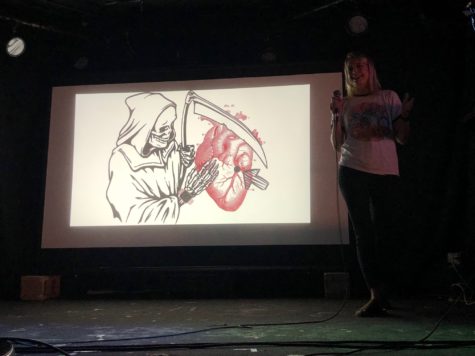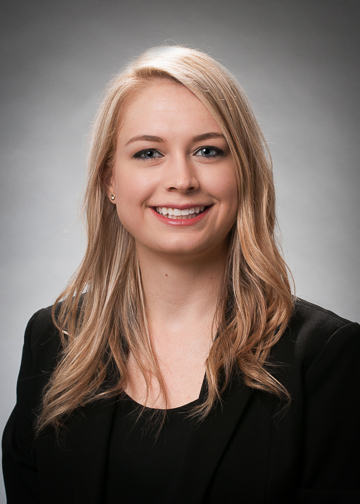Wonder and Skepticism: You Shake My Nerves and Rattle My Brain
Last week I stood beneath the stage lights in the cozy back corner of The Empty Bottle, a dive bar and music venue serving up good vibes in the Wicker Park neighborhood of Chicago. They scrawl the names of each night’s performers, often alternative bands, on the front door in chalk. On Wednesday evening the entrance broadcasted “Wonder and Skepticism,” a local series offering the chance to meet a real-life scientist. That’s me!

The Empty Bottle has two things going for it: slinging grad student stipend-friendly adult beverages and occupying an address within walking distance to my apartment. When the organizers of Wonder and Skepticism invited me to share my research, I accepted with great enthusiasm.
That’s how I found myself and my PowerPoint slides on the same stage where Alt-J played in 2012 for a measly $15 cover (last month they slayed the crowd at Chicago’s Huntington Bank Pavilion). Giving a talk about your research at a bar is a peculiar experience. On the one hand, it was a delightful challenge to distill five years of intense bench work on the molecular mechanisms of cardiac phenomena into a fifteen-minute talk that any non-scientist could understand. On the other hand, I had a stamp of a bicycle and held a cheap domestic IPA.
As I scanned the audience, I realized that the people seated in front of me were just as early in their careers as I was in mine, but we’re doing totally different things with our lives. Take their attendance as evidence that my peers are genuinely curious about the cool things that scientists are up to. Scientists make up a small percentage of the labor force; perhaps the job seems unconventional, even glamorous, from the outside. It sure feels that way sometimes, especially when I’m gowned up in PPE. That would win anybody’s attention.
I came armed with a strategy. I made the talk relatable – which is too easy, unfortunately – as the leading cause of death worldwide, cardiovascular disease likely touches many of my listeners in some way. I addressed some common mysteries, like when one might use the defibrillator bolted on the wall. I incorporated the strange and unusual, such as how the FDA recalled half a million pacemakers last year because of hacking fears. To assess engagement levels and adjust my cadence as needed, I checked the audience for visual feedback, like head nods or raised eyebrows, and I kept my ears perked for verbal cues, like some low hemming and even a gasp from the back row.
The thing is, frequent correspondence occurs between student and PI, or PI and funding agency, or within departments. These conversations are important and ensure that we’re doing high quality, worthwhile science. However, the whispers inside the ivory tower often fail to reach the ears of people who pay for it via their tax dollars or charitable donations, the same people who will benefit the most from its mission. I think that keeping a steady dialogue with the public should be a scientist’s responsibility, just as much as publishing a peer-reviewed article or attending a conference. Talking about my life with my neighbors for 15 minutes took little effort – after all, I’d been practicing my elevator speech every waking moment for the past five years of grad school. Plus, I had fun. At the end of the night, I added my name to the walls of the green room, feeling like a rock star and grateful that I could share my story.

Annie Roessler is a PhD Candidate at Loyola University in Chicago, IL. Her research focuses on the neurobiology and molecular mechanisms of electrically-induced cardioprotection. She tweets @ThePilotStudy and blogs at flaskhalffull.com